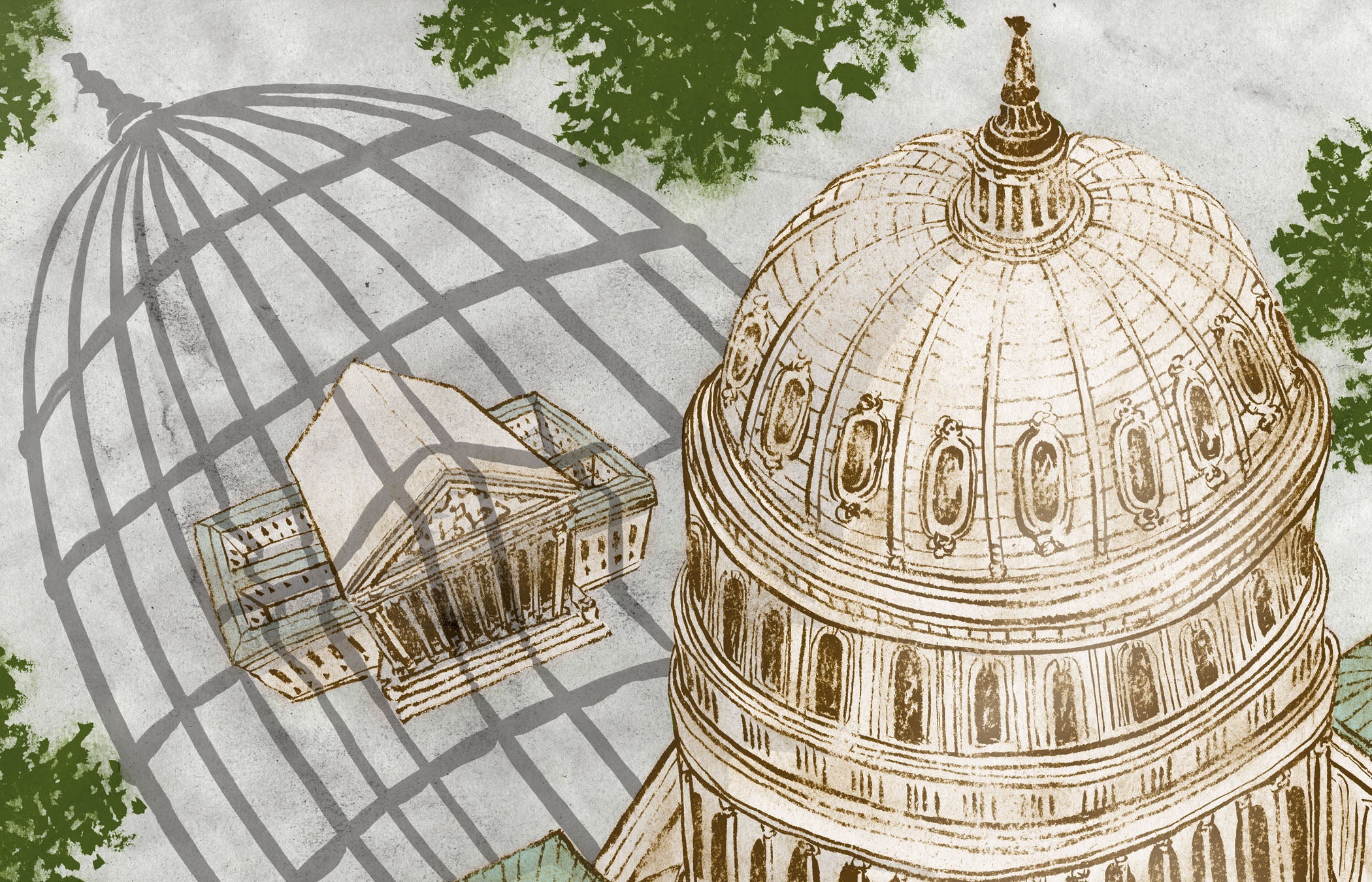Professor Adrian Vermeule’s newest book is likely to raise a few judicial eyebrows. “Law and the Limits of Reason,” just published by Oxford University Press, is a broad-based criticism of the dominant role played by courts in the American lawmaking process.
To Vermeule ’93, the notion that judges are better trained and better equipped to achieve socially desirable results through development of common law is simply wrong. He argues that legislators, less insulated from the public and more diverse in makeup, do a better job of it.
“There’s a basic trade-off between bias and information in the comparison of legislators and judges,” he said in an interview. “The judicial process is arranged to ensure that judges are evenhanded. They hear from both parties through highly structured procedures. But there’s a price to be paid for that evenhandedness, which is that judges have less information. What legislators get that judges don’t get is that they talk to lots of people. They have to run for re-election; they hear from constituents. They’re not sitting in a place that’s constrained by a relatively narrow form of professionalism.”
Vermeule responds to arguments that legislators might be more prone to political influence by countering that political biases in legislatures tend to cancel each other out. He also says that criticism of legislative lawmaking on the basis of potential political influence ignores the shortcomings of the common-law alternative.
By its reliance on precedent, Vermeule says, common law is slow to change. But he suggests that it’s also the product of an insular world occupied by judges and lawyers who lay claim to a high ground—in the book he calls it a “nirvana fallacy”—that is not justified. While sound reason is a scarce commodity, Vermeule writes, “[t]here is no logical connection between the limits of reason, on the one hand, and the superiority of common law or judge-made constitutional law, on the other.”
And besides, he adds, the need for common law isn’t what it used to be.
“Anglo-American jurisdictions call themselves common-law countries, but that’s a misnomer,” he says. “They’re not anymore. In every Anglo-American jurisdiction, the common law has become very heavily statutorified, if that’s a word. The rate of change in the policy environment has accelerated to such a degree that the common law just can’t keep up.”
The answer, he says, is to alter the lawmaking modus operandi. Appellate courts, he argues, should contain lay justices. And Congress should be given the power to codify the Constitution, enacting what he calls “liquidating statutes.” These laws would “define constitutional meaning where the Constitution is ambiguous, or establish constitutional ground rules,” thus reducing the role of the U.S. Supreme Court.
Vermeule admits that the book may raise some hackles, but he wants to launch what he considers a necessary debate.
He says he’d been thinking about writing the book—his fourth—for some time. It grew from his frustration with the influence of 18th-century political theorist Edmund Burke and 20th-century economist and political philosopher F.A. von Hayek, who were strong proponents of the common law.
Vermeule’s own hero is Jeremy Bentham, the 19th-century British philosopher, who strongly criticized English common law.
“He would say that English lawyers make the common law more complicated and mysterious than it needs to be because that maximizes their fees and their power. But in this book, I resolutely stay away from criticizing the motives of people who disagree with me. I think that’s entirely unproductive.”

